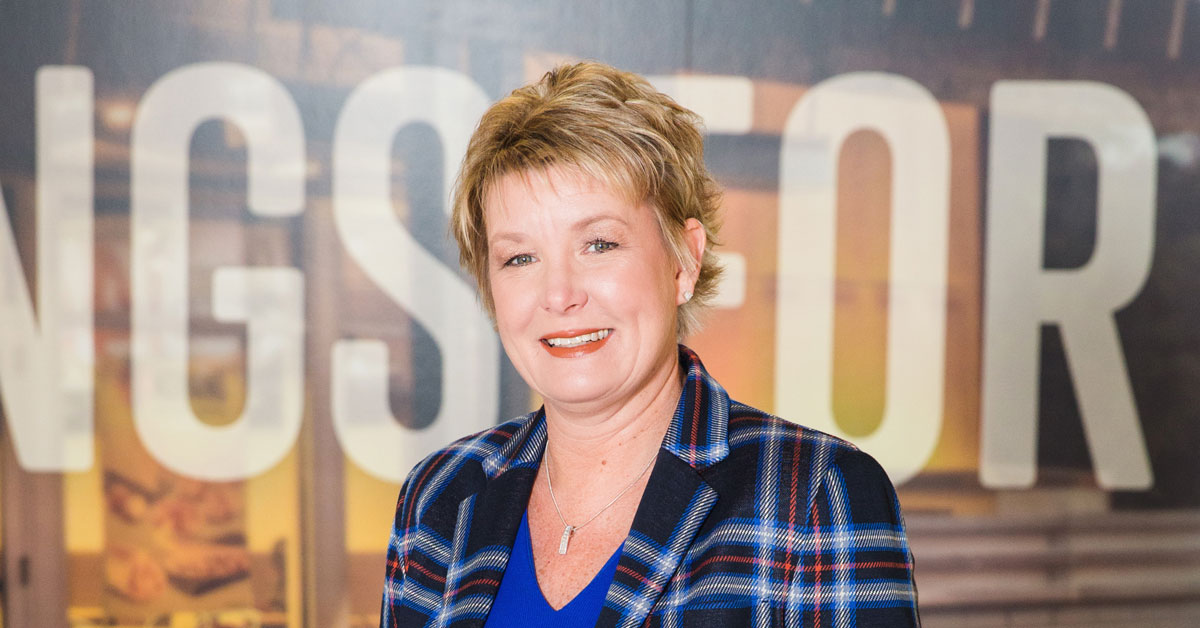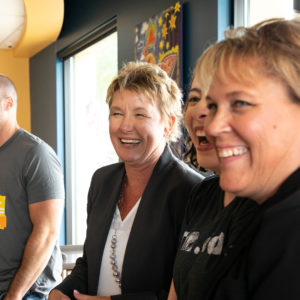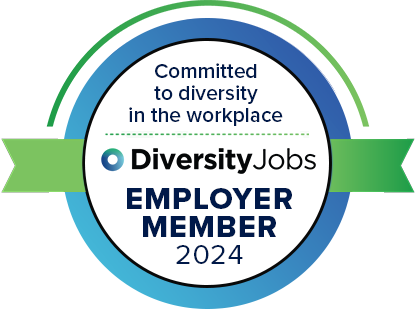- Recognition
Border’s Gay Demaree Joins TCB Mag’s Panel on Post-Covid Consumer Trends in Restaurant Industry
by Border Foods

Restaurants today are continuously adapting to the needs and preferences of consumers, especially post-pandemic. With modern innovations–like the contactless experience–being impacted by the pandemic, what changes are here to stay and what traditional practices are consumers wanting back?
Border Foods’ Gay Demaree, Director of Operations Excellence, joined a Twin Cities Business panel discussion on advancements happening in the consumer world. Watch the full panel discussion here.

Here are some highlights from Gay’s interview with Allison Kaplan, Editor in Chief:
Q: What’s one shift that presents the biggest opportunity for your company, or for the food and beverage industry in general?
A: Our consumers are asking for the contactless experience, so we found ways to accommodate by using digital channels.
It happened instantaneously at the beginning of the pandemic. We had to adapt as consumers told us how they wanted to order.
Q: One of TCB’s top stories was about the futuristic Taco Bell in Brooklyn Park, MN. Tell us what this new TB will look like, and how much was influenced by the pandemic.
A: The most innovative restaurant in existence was driven by the pandemic. With insights from the customers and the growth of delivery channels, we are keeping two key ideas in mind: contactless guest experience and speed, by delivering to more than just one drive-thru lane at a time. The concept is new. We will keep one traditional drive-thru, and three lanes that are geared towards mobile orders and delivery services. Guests will scan a QR code and pick up their order through a propriety lift system.
Q: Are customers returning to pre-pandemic habits or using new practices adopted in the heat of the pandemic?
A: Consumers are leaving their homes for the personal experience, but there’s still a nervousness… Customers can order without having contact, but sit in a restaurant environment; drive-thrus continue to be increasingly popular among guests. And, we can’t discount the popularity of delivery channels, such as Door Dash, Uber Eats and other third party services, which consumers are using at an exponential rate.
Q: What are your thoughts on work force struggles and shortages?
A: The work force is facing struggles both at work and at home. Employees are following new protocol that’s continuously changing. Sometimes they face product shortages. On top of that, employees are playing new roles at home: They’re having to stay home with ill children, needing to quarantine, being teachers at home, and other new roles. Employees are looking for flexibility for experiences out of anyone’s control, both at work and at home… The good new is, applicant flow is increasing.
Q: Everybody’s talking about the supply chain. Anyone who’s tried to order anything has encountered delays. How are supply chain issues impacting your business?
A: We’ve been carrying extra sources, especially the most important, higher voluming items. It’s forced us to focus on our inventory in warehouses, and order frequency. Creating a positive environment is also important for our team, which translates into a positive environment for the guests. … It’s all about planning ahead.
Q: What are some predictions about delivery services?
A: We want delivery to be as convenient as possible. We have several promotions and ads that drive consumers to purchase within a time frame. It’s a shift in the way business is operated. We’re typically busier later in the day, and the delivery option appeals to customers. With our Brooklyn Park location having four lanes, our intent is to service as many people as quickly and easily as possible to keep our customers happy. Delivery and mobile orders will continue to grow.
Consumers are all about the convenience. They want it when they want it, how they want it and they just want to grab it and go.
